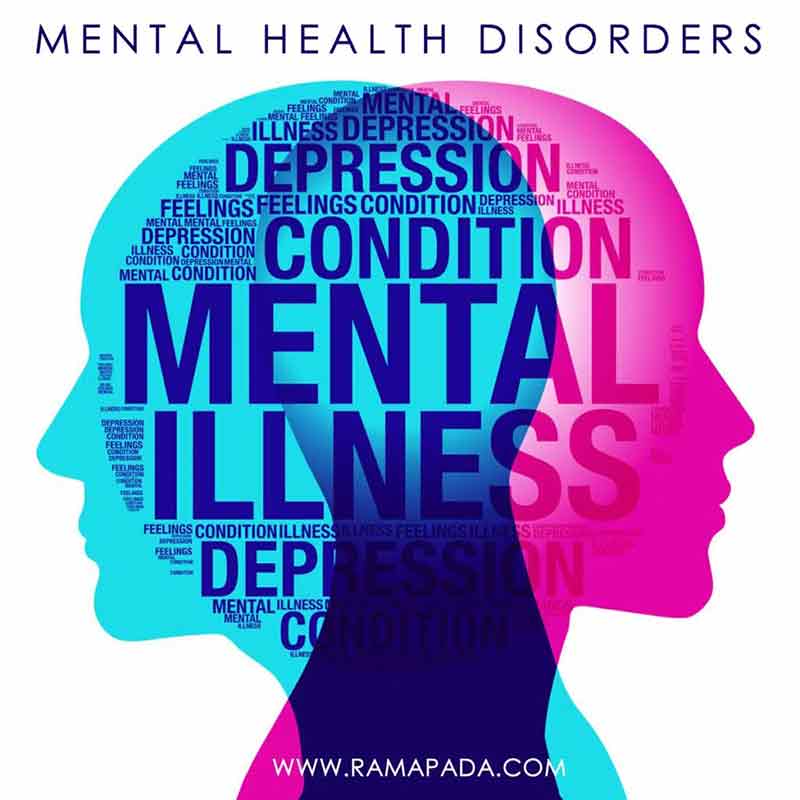Mental health disorders affect a significant portion of the global population, transcending age, gender, and cultural boundaries. Yet, there is often a prevailing stigma and misunderstanding surrounding these conditions. It is essential to shed light on mental health disorders, dispel myths, and foster a greater understanding of the challenges faced by individuals who experience them. This article aims to explore various common mental health disorders, their impact, and the importance of education, empathy, and support in promoting overall well-being.
Anxiety Disorders:
Anxiety disorders are characterized by excessive and persistent worry, fear, and apprehension. Conditions such as generalized anxiety disorder (GAD), panic disorder, social anxiety disorder, and phobias fall under this category. Anxiety disorders can significantly impact daily functioning, relationships, and overall quality of life. Understanding and empathizing with individuals experiencing anxiety disorders can help create a supportive environment and encourage seeking professional help for effective management and treatment.
Depressive Disorders:
Depressive disorders, such as major depressive disorder and dysthymia, cause persistent feelings of sadness, hopelessness, and a loss of interest in activities. Depression can have debilitating effects on an individual’s emotional, cognitive, and physical well-being. It is crucial to recognize depression as a legitimate medical condition and provide support, understanding, and access to treatment options such as therapy and medication.
Bipolar Disorder:
Bipolar disorder swings people between depressive episodes and periods of heightened energy and euphoria known as manic episodes. These mood shifts can disrupt daily life and relationships. Gaining knowledge about bipolar disorder and developing empathetic understanding are crucial. These factors enable effective support for individuals, aiding them in symptom management and the achievement of stability.
Schizophrenia:
Schizophrenia is a chronic mental health disorder that affects how a person thinks, feels, and behaves. It is often associated with hallucinations, delusions, disorganized speech, and a loss of touch with reality. The stigma surrounding schizophrenia can lead to social isolation and hinder access to appropriate care. Increased understanding and compassion are essential for supporting individuals with schizophrenia. These qualities enable us to advocate for inclusive communities that provide vital treatment and support services.
Eating Disorders:
Eating disorders, including anorexia nervosa, bulimia nervosa, and satiate-eating disorder, are severe mental health conditions. These disorders are characterized by unhealthy relationships with food, distorted body images, and low self-esteem. These disorders can have severe physical and psychological consequences. Raising awareness about the underlying factors contributing to eating disorders and promoting body positivity can help reduce stigma, encourage early intervention, and facilitate long-term recovery.
Post-Traumatic Stress Disorder (PTSD):
PTSD can develop after experiencing or witnessing a traumatic event, such as combat, natural disasters, or violent personal assaults. It involves symptoms such as flashbacks, nightmares, severe anxiety, and emotional distress. Cultivating a supportive environment and providing access to trauma-informed care and therapy can help individuals with PTSD heal and regain control over their lives.
Mental health disorders are not a reflection of weakness or personal failing. They are legitimate medical conditions that require understanding, empathy, and support from individuals, communities, and societies at large. We must dismantle harmful stigmas and encourage frank discussions about mental health. Accessible services are crucial for building a supportive environment where seeking help is normalized and met with compassion. Doctors may prescribe selective serotonin reuptake inhibitors (SSRIs) to treat specific conditions like anxiety and mood disorders.

